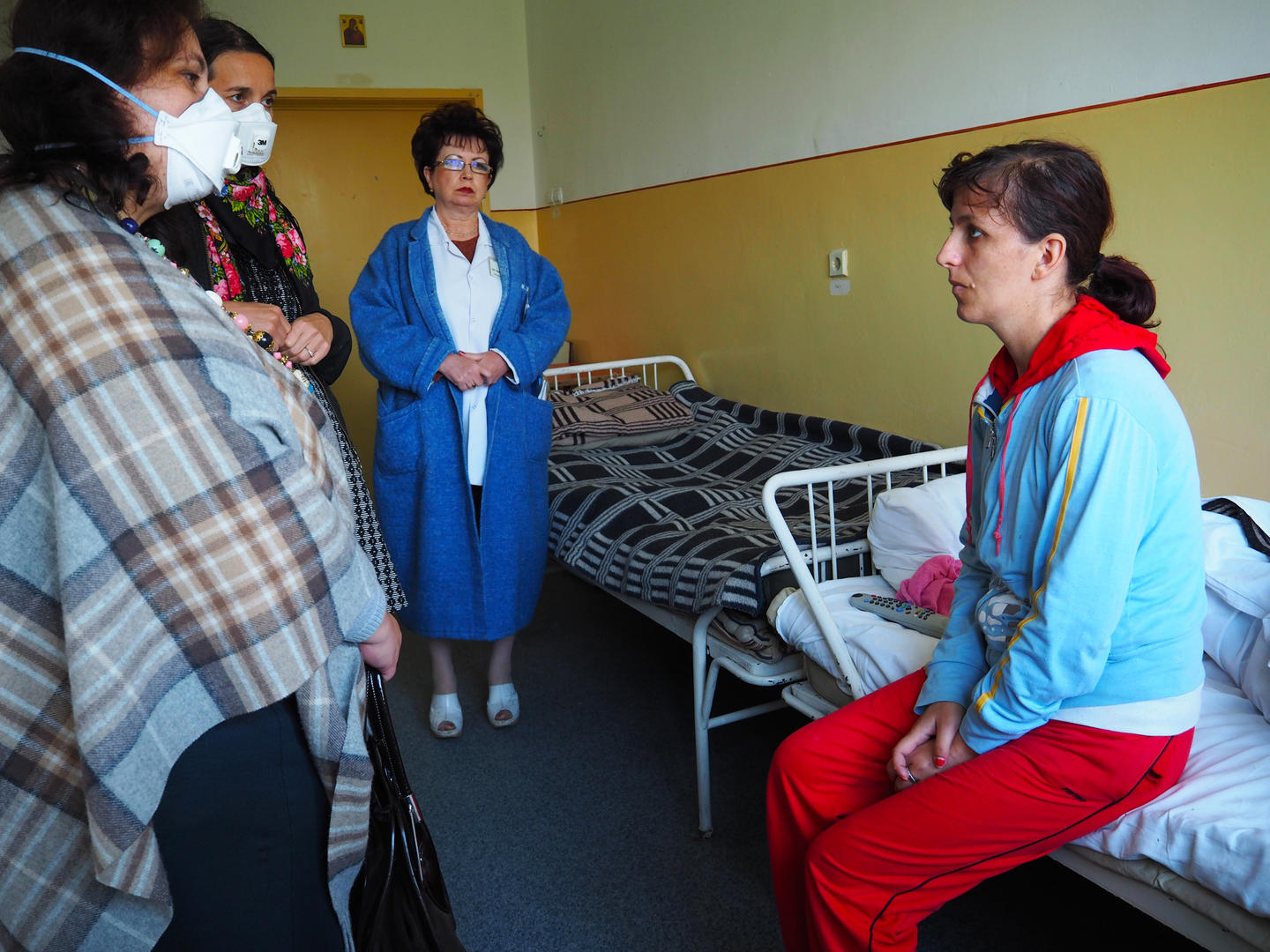According to the World Health Organization (WHO), Romania has the highest tuberculosis (TB) incidence in the European Union - about five times higher than the EU average. Each year, around 20 000 people are diagnosed with the disease. It is estimated that there are about 800 new cases of multi-resistant tuberculosis (MDR-TB) each year. MDR-TB is a major health problem that threatens the progress already made in TB care and control worldwide. What is particularly difficult with MRD-TB is that it cannot be treated with common antibiotics. The treatment is long, and the patients will need at least two years of medication.
Addressing challenges
The high number of people suffering from TB in Romania can be explained by a combination of multiple factors, such as problems in ensuring a rapid and complete diagnosis, a lack of comprehensive, correct and high-quality treatment and an out-of-date reporting system. Through the ‘Improving the health status of the population in Romania by increasing TB control’ project, which has received about €9 million in support from Norway through the Romanian ‘Public Health Initiatives’ programme, Romanian authorities are working to address shortcomings in TB treatment.
Read more about how the project works to challenge core issues in TB treatment
Raising knowledge
LHL International Tuberculosis Foundation from Norway is a partner in the project. Since 1980, LHL International has been involved in the fight against TB worldwide. In Romania, one of the core issues they help to address is lack of knowledge about TB among patients, the general population and vulnerable groups – and here the involvement of LHL International has already made significant difference:
“The treatment of TB, and especially MDR-TB, is very lengthy, and there is a challenge that patients stop the treatment before it’s complete. We believe that this is because of a lack of understanding for the disease. We are working to provide health workers with the necessary knowledge to help patients better understand how important it is to complete the treatment,” says Mona Drage, Deputy Director, LHL International Tuberculosis Foundation.
She emphasises how long and painful the treatment can be, with considerable side effects, and how it requires a lot of the patients:
“People from vulnerable groups who receive the diagnosis have poor means of understanding what TB is, and will often not understand the importance of taking their medicine every day. When they start feeling better, they stop taking the medicine, even though they are still infected with the bacteria.”
Ensuring treatment
It is essential that patients complete the treatment. If patients stop the treatment, they do not only endanger themselves, but also the health of other people close to them. LHL International is therefore working with health workers to make sure that they provide patients with information about the nature of the disease and the treatment, as well as ensuring better dialogue and follow-up of patients.
“Through trainings we work to make health workers more aware of the importance of giving patients the same information in several ways and through different channels. This provides the patients with more knowledge about the disease, and ensures that they understand the importance of continuing the treatment,” says Drage.
In addition to trainings, LHL International is developing patient-friendly information materials. The information materials will serve as a tool for the health care professionals when working with patients from vulnerable groups, and will provide the patients with tangible information about the disease, treatment and side effects.
More patient-centered care
The work that LHL International is involved in has already achieved tangible results. The MDR-TB treatment success rate has increased from 20 to 58.5%, and more than 80 care health professionals have been trained in how to better communicate with patients and establish their trust, understanding and motivation, but also how to cope with fear and anger.
Equally important, the project has helped strengthen patient-centered care in TB treatment. This ensures that patients are better informed about their disease and become more active participants in their treatment:
“Through the project, patient organisations have been strengthened. Our Romanian partner, ASPTMR, a patient organisation focusing on the needs and rights of patients with TB and MDR-TB, has gained new significance in the Romanian health care system as a result of the project. That is an important result, as it will ensure patient-centered care in TB treatment also in the future,” Drage concludes.
Read more about the Romanian ‘Public health initiatives’ programme

